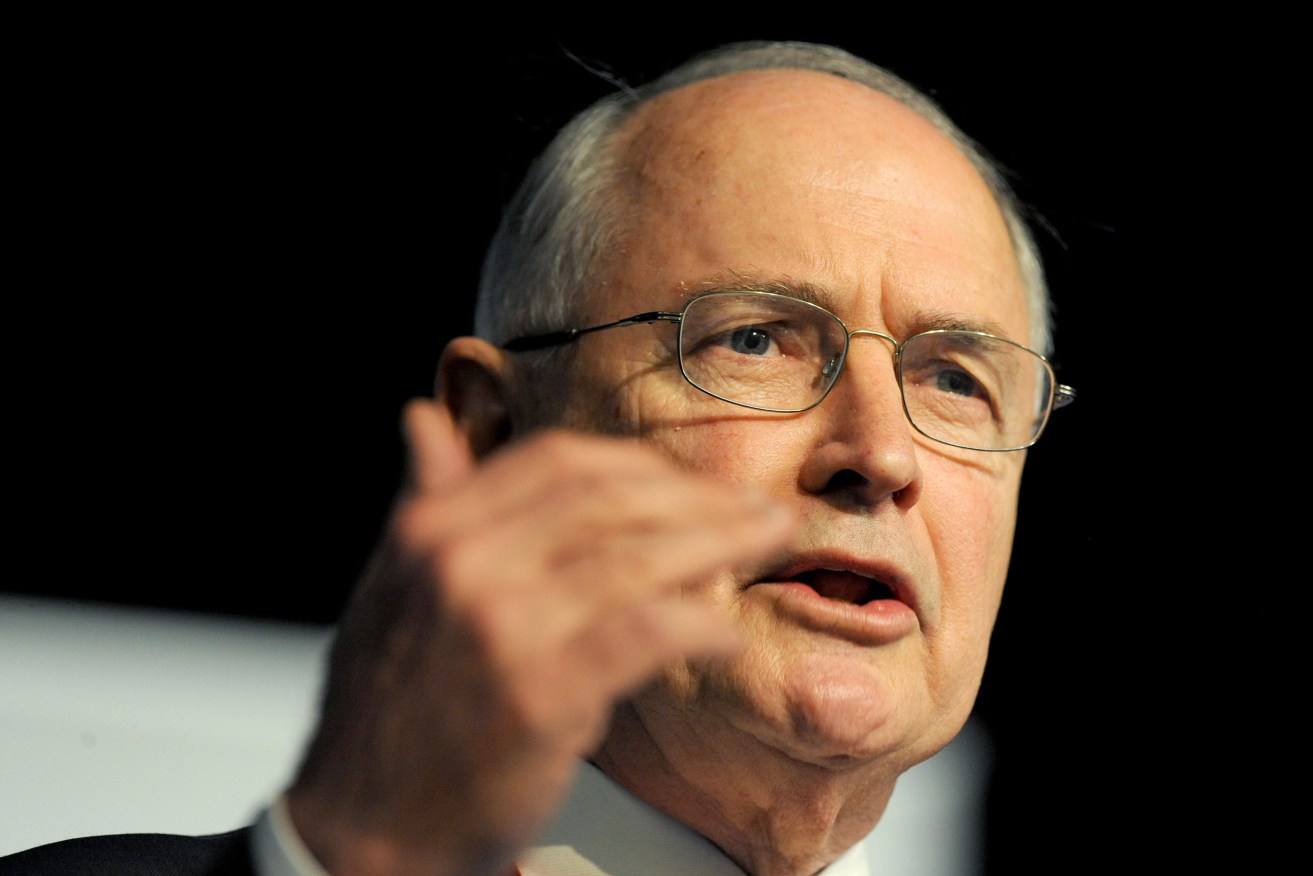Garnaut: Queensland’s role as a renewables superpower starting to take shape
Queensland needed to build a “rhombus of reliability” in renewable power generation and transmission in the central and northern parts of the state to support its competitive economic advantage in a zero emissions world, a major infrastructure conference has been told.


Professor Ross Garnaut says Queensland is poised to become a renewable energy superpower. (AAP Image/Joe Castro)
Economics Professor Ross Garnaut said the area of Queensland bounded by Townsville, Gladstone, Barcaldine and Georgetown provided enormous opportunities to develop industry based on renewable energy.
Garnaut told the Infrastructure Association of Queensland annual assembly in Brisbane that regional cities like Gladstone, Townsville, Mackay and Rockhampton had advantages that no other place in Australia had when it came to pivoting to a zero emissions industrial economy.
However, he said this was dependent on governments and the private sector realising that investment in transport and power transmission infrastructure that would need to support generation and use of energy many times greater than currently.
“It’s a transformational expansion,” he said.
“Play our cards right and Queensland can play a very big role in the global energy and industrial transition,” he said.
Garnaut, one of Australia’s most prominent advocates for renewable energy, is among several high profile speakers appearing at the IAQ assembly this week.
He said a “rhombus of reliability” would link the huge solar and wind generation capacity west of the Great Dividing Range to the regional industrial cities on the coast.
Garnaut said that while Queensland had great advantages it faced global competition in becoming an energy generation superpower.
He said that at the expense of a declining coal and gas industry, Queensland would reap benefits including limiting damage to the Great Barrier Reef, containing sea level damage on the coasts and limiting the intensity of future cyclone events.
However, the greatest benefit would be immense development opportunities in central and north Queensland.
“There are huge net benefits for Australia in early zero emissions for the world,” he said.
“There is a cost – we won’t get much if any new coal and gas investment and we’ll gradually lose the employment and incomes and government royalties from the coal and gas already there.”
“On the other side of the ledger successful participation in a necessary global transitions will bring benefits.”
He said the development opportunity “greatly exceeds” what the national economy would lose from the decline of coal and gas.
He said Australia was potentially an economic superpower of a zero emissions world economy.
“We have the best natural resources for wind and solar in the world and most of the world’s energy is going to come from wind and solar,” he said.
“The means if we play our cards right we will be the low cost energy country of the world.”
This would also provide Australia with an industrial advantage as it would be much cheaper than it is presently to make products like steel and aluminium close to the source of raw materials snd energy generation.












